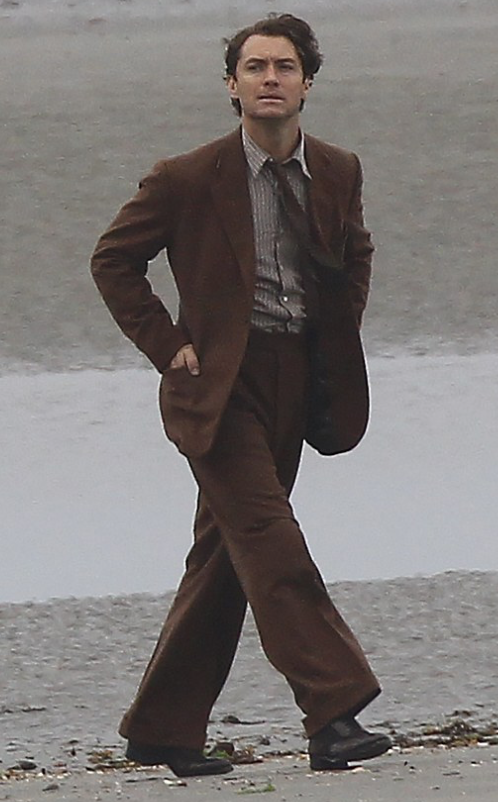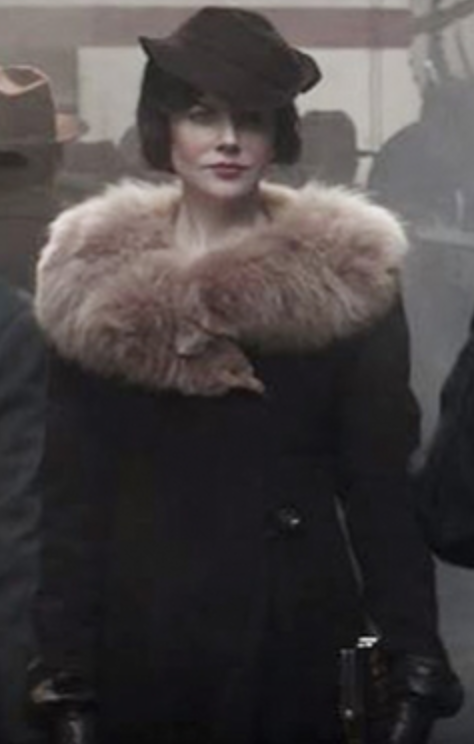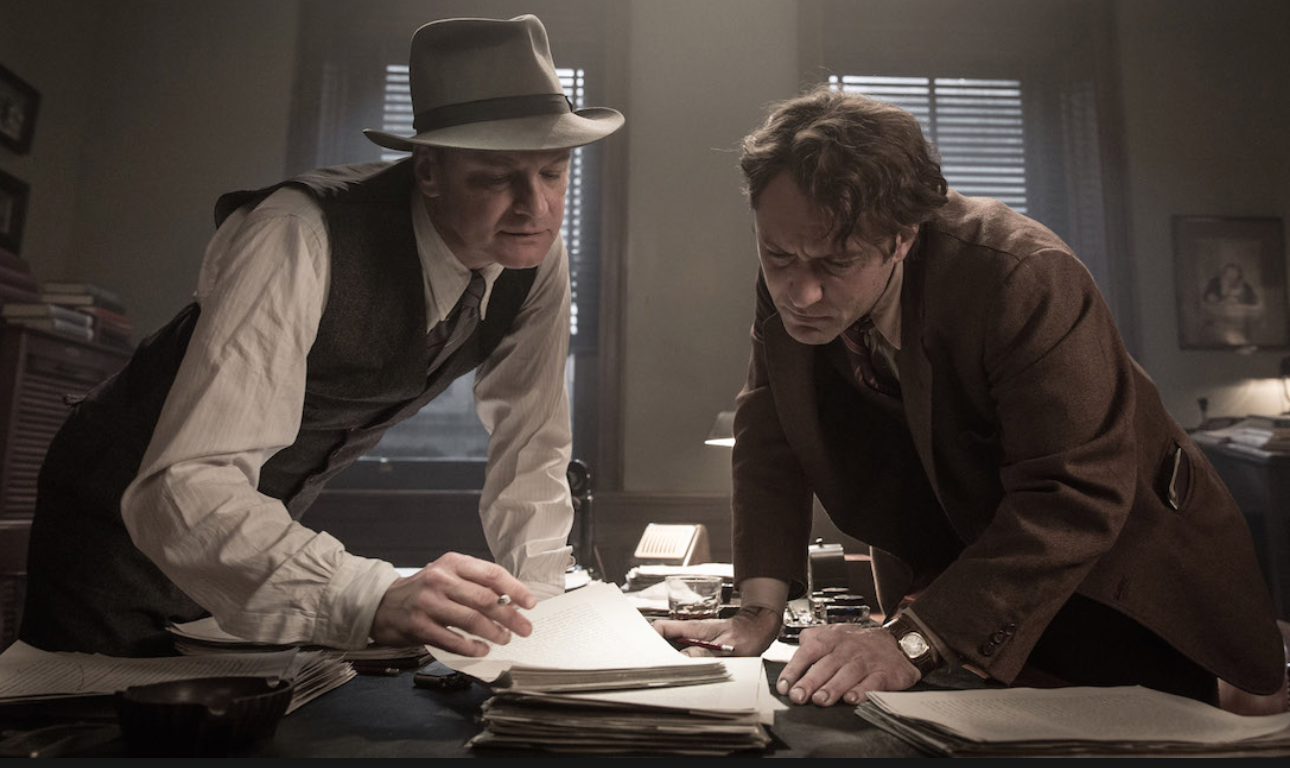 Calling your film “Genius” is asking for it, since almost nothing is. But this literary bromance adapted from A. Scott Berg’s book about author Thomas Wolfe and editor Max Perkins is not bad, which is a feat unto itself given that the only thing more boring than watching someone write in a movie may be watching someone edit.
Calling your film “Genius” is asking for it, since almost nothing is. But this literary bromance adapted from A. Scott Berg’s book about author Thomas Wolfe and editor Max Perkins is not bad, which is a feat unto itself given that the only thing more boring than watching someone write in a movie may be watching someone edit.
Jude Law stars as the author, and his performance sets the tone for the film. Wild-haired and wild-eyed, he bellows from rooftops, swills bourbon at Harlem jazz clubs, and delivers hulking manuscripts in three hand trucks at a time. He’s not only the classic manic pixie boy (yes, that’s a thing) but a classic scenery-chewer. Yet just when you tire of his ham-sandwich antics – his hoarse speeches, his windmilling limbs – you look closer and see his desperation to connect. It is painful, yes, but it captures the loneliness of the extroverted introvert, as well as the desire of all artists to make a lasting impact.
Law has always been a conundrum of an actor – at once subtle and over-the-top. I have never seen him on stage, but consider him an ideal screen actor because so much of his real work takes place in those beseeching eyes, which can be brilliantly harnessed by the right director. Here they layer extreme selfishness over extreme sensitivity – necessary ingredients for genius, some might argue. And on the occasions that first-time film director Michael Grandage slows down enough to linger on them, we learn a lot. Ditto for the eyes of Colin Firth, who plays Scribners’ Perkins, a fedora-clad, buttoned-up sort known for moving the role of the editor into the twentieth century. Perkins is hardly a stretch for Firth – starting with Darcy, he’s played a series of stuffed shirts crying out for unbuttoning– but that doesn’t mean he doesn’t embody the editor ably, starting with his cautious appreciation of Wolfe’s manchild enthusiasms.
One problem with “Genius” (and, oh, how that phrase makes me giggle) is that award-winning theater director Grandage doesn’t yet grasp how little his new medium requires him to telegraph. Both Firth and Law are capable of great nuance, and yet to express their feelings they’re made to follow what only can be described as “stage directions.” To wit: Perkins receives bad news, stands slowly from his desk, and trudges across a room to shut a door. We get it. He’s upset. The quietest of close-ups would convey this far more effectively.
But that’s a quibble, not a qualm. Overall, this film tells much about the horror and elation of the editing process. Before working with Wolfe, Perkins was known for discovering F. Scott Fitzgerald and Ernest Hemingway (played by Guy Pearce and Dominic West in irresistible cameos); he specialized in the previously rejected author, which made him the ideal candidate to excavate the glory lurking in Wolfe’s behemoths that had already been dismissed by every other publisher in town. In an opening montage, Max reads what eventually becomes Look Homeward, Angel, and if depicting writing and editing compellingly on film is rough, it pales in comparison to the challenges of depicting reading. At first, Perkins sits at his desk, his jaw tightened by the prospect of the 1,000-page, single-spaced manuscript that unleashes mid-sentence in a seemingly endless stream of seemingly endless paragraphs (read here in Law’s syrupy Southern cadences, to add insult to injury). Then he surrenders to the awe threading through those lines, and his face slackens – becomes joyful and private – as he reads on the train, absently greets his daughters and wife, playwright Louise Saunders (Laura Linney in a thankless role), and hides in a closet to finish the book. Upon laying it aside, he wells up. To my surprise, so did I. It is a wonderful homage to the secret pleasures of the written word, and it worms past your defenses just as Law’s Wolfe worms past Perkins’s and, to some degree, our own.
Of course, the author is a nightmare. He overwrites pathologically – psychotically, really – and resists Perkins’s efforts to reel him in. (Their editing scenes are unexpectedly satisfying; clearly screenwriter John Logan [“The Aviator,” “Hugo”] has had to kill a few babies of his own.) Shacked up with married theater designer Aline Bernstein (Nicole Kidman) when he’s not with “working girls” (“they don’t count,” he purrs), attacking Perkins’s friends and family, Wolfe betrays everyone who loves him. But while the artist who drains others’ batteries to charge his own may be a familiar conceit, Wolfe’s pained self-awareness feels new, as does Perkins and Bernstein’s joy and despair of being a creative ally. Too, the question is raised of who’s the real genius at hand. Controversy surrounds the collaboration of Wolfe and Perkins: Some have suggested the latter man’s edits were too rigorous; others have argued Wolfe would have been lost had Perkins not whipped his prose into shape. The tension and ultimate irrelevance of this controversy may explain why this third act, in which the men fall out, goes off the rails. Both men were wunderkinds in their respective fields, and their collaboration was far more dynamic, at least on screen, than their separate ways.
Visually, this film resembles a postcard taken in 1929 more than a typical prestige drama. Filtered through bottle greens and dung browns, the actors (with the exception of lucky Kidman) look like they’re wearing clothes actually made in the Depression, and the lighting is less atmospheric than depressive. This matters not. “Genius” has its failings but it glows with a shared wonder of the world and of the written word.
This originally appeared on Signature.
